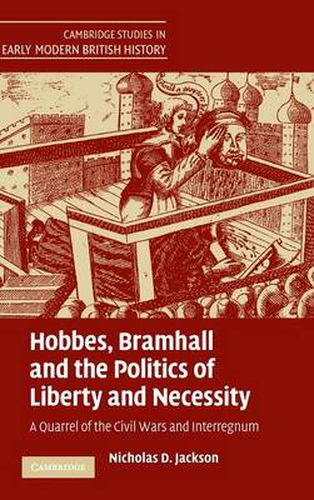Readings Newsletter
Become a Readings Member to make your shopping experience even easier.
Sign in or sign up for free!
You’re not far away from qualifying for FREE standard shipping within Australia
You’ve qualified for FREE standard shipping within Australia
The cart is loading…






This book was the first full account of one of the most famous quarrels of the seventeenth century, that between the philosopher Thomas Hobbes (1588-1679) and the Anglican archbishop of Armagh, John Bramhall (1594-1663). This analytical narrative interprets that quarrel within its own immediate and complicated historical circumstances, the Civil Wars (1638-49) and Interregnum (1649-60). The personal clash of Hobbes and Bramhall is connected to the broader conflict, disorder, violence, dislocation and exile that characterised those periods. This monograph offered not only the first comprehensive narrative of their hostilities over two decades, but also an illuminating analysis of aspects of their private and public quarrel that have been neglected in previous accounts, with special attention devoted to their dispute over political and religious authority. This will be of interest to scholars of early modern British history, religious history and the history of ideas.
$9.00 standard shipping within Australia
FREE standard shipping within Australia for orders over $100.00
Express & International shipping calculated at checkout
Stock availability can be subject to change without notice. We recommend calling the shop or contacting our online team to check availability of low stock items. Please see our Shopping Online page for more details.
This book was the first full account of one of the most famous quarrels of the seventeenth century, that between the philosopher Thomas Hobbes (1588-1679) and the Anglican archbishop of Armagh, John Bramhall (1594-1663). This analytical narrative interprets that quarrel within its own immediate and complicated historical circumstances, the Civil Wars (1638-49) and Interregnum (1649-60). The personal clash of Hobbes and Bramhall is connected to the broader conflict, disorder, violence, dislocation and exile that characterised those periods. This monograph offered not only the first comprehensive narrative of their hostilities over two decades, but also an illuminating analysis of aspects of their private and public quarrel that have been neglected in previous accounts, with special attention devoted to their dispute over political and religious authority. This will be of interest to scholars of early modern British history, religious history and the history of ideas.